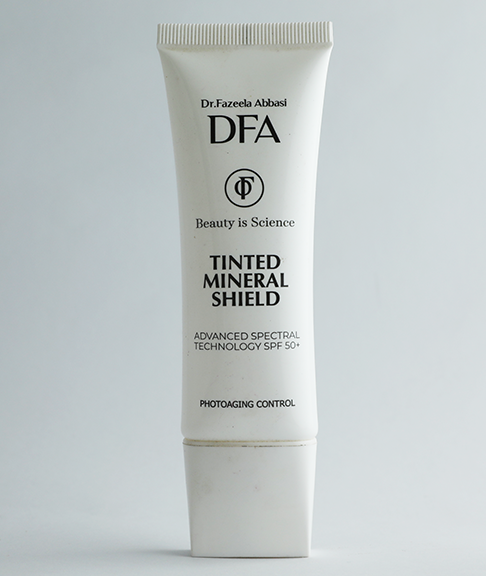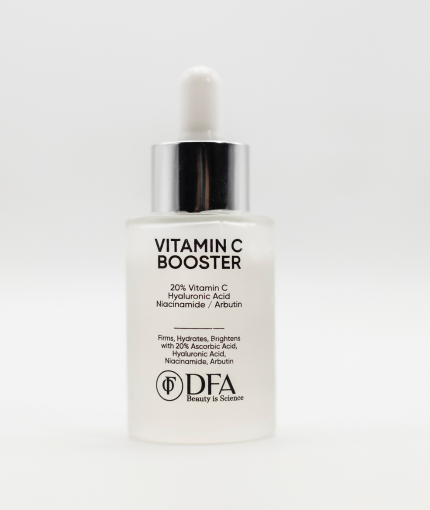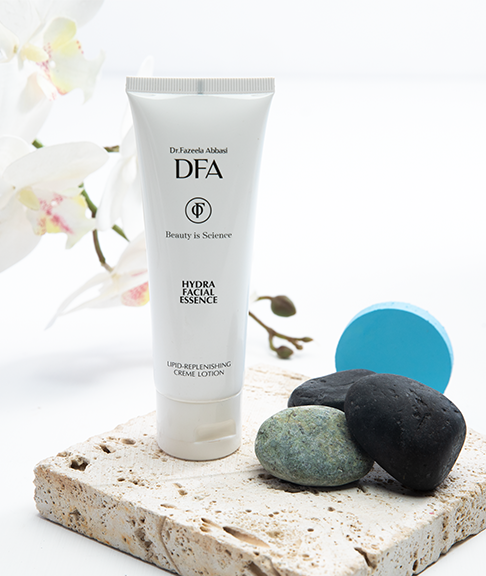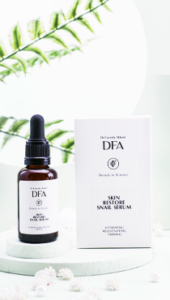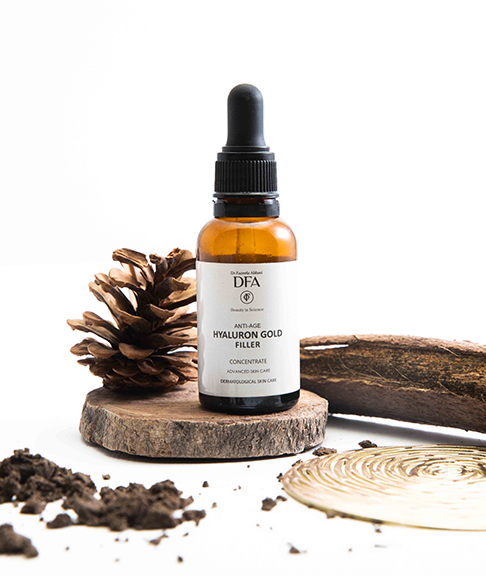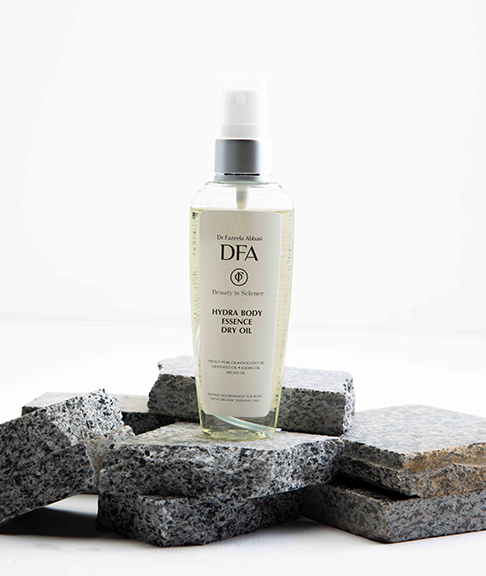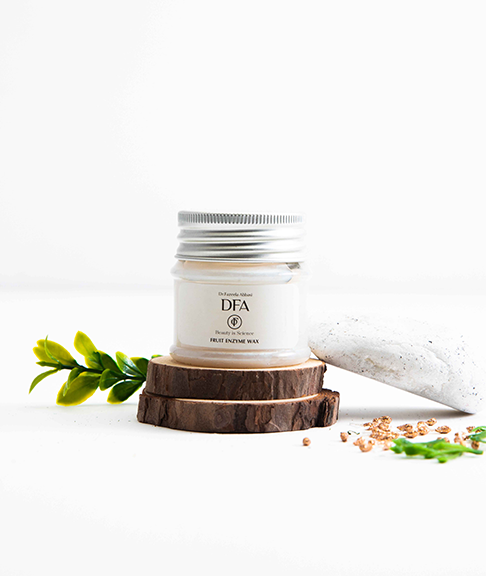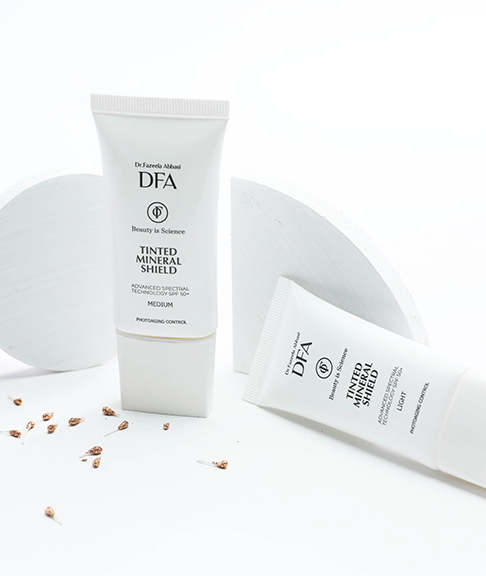Ceramides
Ceramides are a family of fats or lipids that are found naturally in skin cells. They make up to 50% of your outer skin layer, or epidermis. Ceramides are important for retaining your skin’s moisture and preventing the entry of germs into your body. Hence, skincare products rich in ceramides help skin repair and maintain its pH.
Ceramides, along with fatty acids and cholesterol, make up the lipid bilayer that holds up the outer skin cells. This creates a skin barrier to protect against the environment and to retain moisture. In terms of the brick-and-mortar analogy, ceramides act as a glue that holds skin cells together to create a semi-permeable barrier.
Like collagen and Hyaluronic Acid—substances found naturally within the skin that are popular in cosmetics—ceramides make for excellent skin care ingredients. In skin disorders that compromise the skin barrier, ceramides in the skin are typically decreased and ceramide patterns are disrupted. Fortunately, ceramides in skin care products have been proven to improve these skin conditions and restore a healthy skin barrier.
In addition to boosting the structure and integrity of the skin barrier, ceramides are known for their anti-aging and hydrating properties. They are suitable for all skin types and work well with other skin care ingredients. They are not comedogenic and help improve acne and rosacea and other inflammatory skin disorders.
Similar to ceramides, some products may contain ceramide precursors—ingredients that have the ability to stimulate skin in order to create natural ceramides. Phytosphingosine and sphingosine are common ceramide precursors.
Where Do Ceramides Come From?
Ceramides in skin care are primarily synthetic or derived from plants such as wheat germ oil. Ceramides can also be extracted from rice, sweet potatoes, and yeast.
Functions of Ceramides:
The major functions of ceramides within skin and in skin care include:
1.Skin Barrier Homeostasis
Homeostasis of the skin barrier is defined as the specific ratio of all three lipids in the skin barrier. These lipids include 50% ceramides, 25% cholesterol, and 15% free fatty acids. When this balance is thrown off, such as with a decrease in ceramides, the skin barrier is disrupted. Since ceramide content is decreased with age, it’s recommended to incorporate ceramides in your skin care routine to promote skin barrier homeostasis.
2.Improve Hydration
Since ceramides account for half of the gel-like lipid layer holding up skin cells in the Stratum Corneum, their water-holding function is no surprise. Ceramides have been considered to improve Transepidermal Water Loss (TEWL) and has been proven to significantly improve hydration in skin.
3.Prevent or Treat Diseased Skin
While ceramides boost health skin, they’re also crucial in repairing diseased skin. Impaired skin barrier function is associated with several skin disorders, including atopic dermatitis, psoriasis, acne, rosacea, contact dermatitis, and some genetic disorders. Topical ceramide creams are, therefore, a potential solution to improve overall skin condition.
4.Improve dehydrated skin
There’s a huge difference between delivering moisture to the skin and reversing dehydration. Dehydrated skin is a skin condition characterized by the skin barrier’s inability to retain enough water. This can wreak havoc on the moisture balance (oil vs. water) in skin and can cause premature aging. When skin is dehydrated, it’s likely lacking ceramides, which have the ability to hold onto water.
5.Treat acne
Acne isn’t fun for anyone, and adult acne can be especially troublesome. Ceramides in skin care products may help alleviate acne. This is because ceramides reduce irritation and inflammation and improve skin condition. The moisture-balancing properties of ceramides may also help to reduce acne by regulating oil and sebum.
6.Anti-inflammatory properties
In addition to alleviating acne-related inflammation, ceramides have anti-inflammatory properties that can improve skin barrier abnormalities, atopic dermatitis, and other dermatoses. The anti-inflammatory benefits of ceramides also include the relief of burning, itching, and radiation sensitivity.
7.Protect against intrinsic aging
Ceramide levels in skin decline as we age, which means the uppermost layer of the skin becomes more thin and fine lines become deeper and more noticeable. Replenishing ceramides with skin care promotes moisturized skin that appears firmer and plumper, so fine lines and wrinkles are filled in.
8.Protect against extrinsic aging
Part of the skin barrier function is to protect against the elements, including pollutants, radiation, extreme climate conditions, and other environmental stressors. These aggressors may cause oxidative stress and free radical damage, which can cause premature aging. Photoaging from sun damage has been a long-time culprit of fine lines and wrinkles, but airborne toxins are moving up the ladder of the main causes of free radical damage. As you now know, ceramides play a massive role in skin barrier function. With at least half the skin barrier comprised of ceramides, they protect against premature aging by protecting against harsh elements every day.
Ceramides Safety Profile
There is ample research to suggest that ceramides, both synthetic and natural, are safe and non-toxic to the skin. Because of their natural presence in the skin, ceramides are suitable for all skin types, including sensitive skin and diseased skin.



